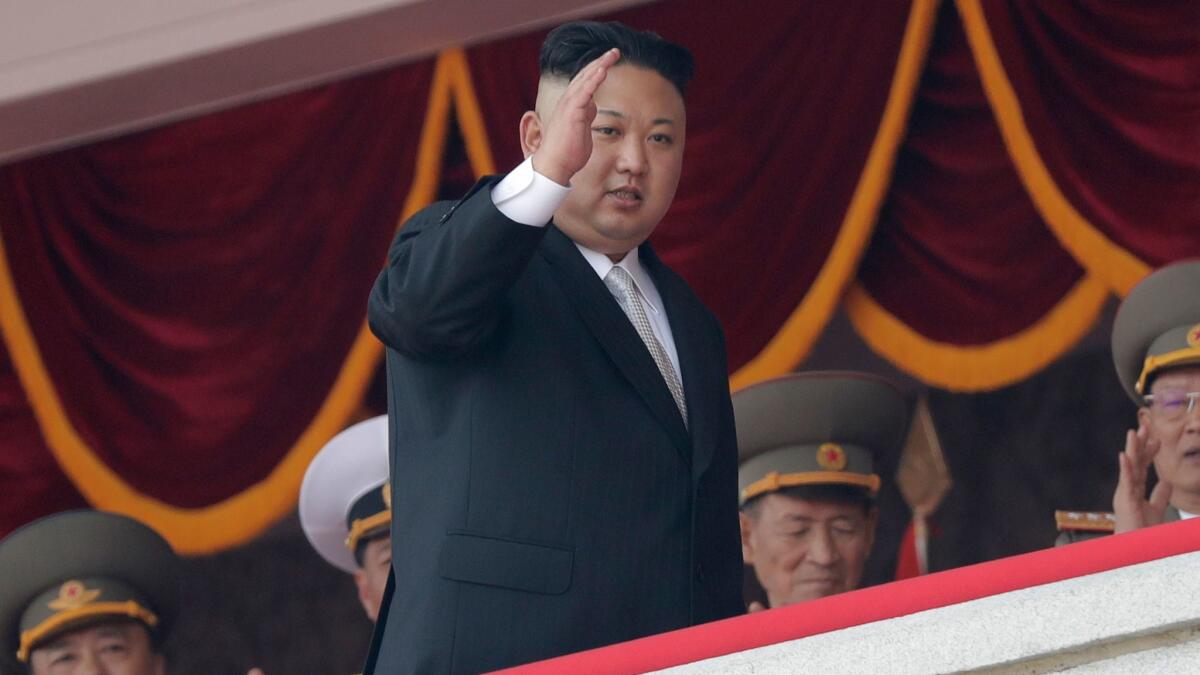Editorial: Trump tries diplomacy in countering North Korea’s nuclear provocation

North Korea’s nuclear program, which reached an ominous milestone last month with the testing of an intercontinental ballistic missile capable of reaching Los Angeles, has prompted some of the Trump administration’s worst foreign-policy moments.
At times the administration seemed to signal, almost casually, that it was considering a preemptive strike on North Korea, which could trigger a land war on the Korean peninsula and the deaths of tens of thousands of people. At other times President Trump seemed to think that China could be easily induced to pressure North Korea to abandon its nuclear ambitions. (Later, Trump tweeted that “I am very disappointed in China.”)
Now, fortunately, the administration seems to have settled on a policy of muting the bellicose rhetoric and giving diplomacy a chance. That approach paid off last weekend when the United Nations Security Council unanimously approved a resolution imposing unprecedentedly tough economic sanctions on North Korea. Significantly, the sanctions were supported by China, which accounts for more than 90% of North Korea’s external commerce. China’s foreign minister said that he had advised his North Korean counterpart not to “provoke the international society’s good will by conducting missile launching or nuclear tests.”
Now, fortunately, the administration seems to have settled on a policy of muting the bellicose rhetoric and giving diplomacy a chance.
The new sanctions are the toughest yet, potentially cutting off a third of North Korea’s exports and undermining the country’s stabilizing economy. But there is no guarantee that they will be enforced by the North’s trading partners, or that they will persuade it to comply with a series of U.N. resolutions against its nuclear and missile tests. Certainly the North’s initial reaction was defiant. North Korea’s official news agency threatened to make the United States “pay the price for its crime thousands of times,” and North Korea’s foreign minister warned that warned that Pyongyang “will, under no circumstances, put the nuclear and ballistic missiles on the negotiating table.”
But that reaction was to be expected. The Trump administration, which ostentatiously announced this year that it was ending the Obama administration’s policy of “strategic patience,” now seems willing to wait for at least some period of time to see if the new sanctions lead North Korea to reconsider that position.
Indeed, the administration eventually may be willing to resume talks with North Korea without a commitment by Pyongyang in advance that it would be willing to dismantle its nuclear program. On Monday, Secretary of State Rex Tillerson told reporters that “the best signal that North Korea could give us that they’re prepared to talk would be to stop these missile launches.” (In another gesture, Tillerson said last week that the U.S. did not seek “regime change” in the North.)
This combination of prudence and pressure is less emotionally satisfying than the simplicities and saber-rattling of the first few months of the Trump administration. But it’s also more responsible and realistic.
Follow the Opinion section on Twitter @latimesopinionand Facebook
More to Read
A cure for the common opinion
Get thought-provoking perspectives with our weekly newsletter.
You may occasionally receive promotional content from the Los Angeles Times.










